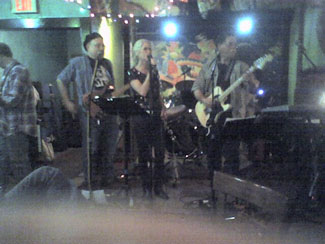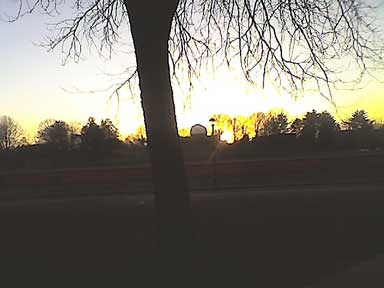For many years I would tell friends that Wesleyan entered the 1960s well before the decade really started and continued in the sixties spirit decades after the official end of that turbulent time. I meant that Wes was already exploring uncharted, radical territory in the 1950s, and with Norman O. Brown, Carl Schorske on the faculty, along with the impact of John Cage and Buckminster Fuller, there was a willingness to defy convention and explore new boundaries in culture and society. This was complemented by curricular innovations under Victor Butterfield, and especially with the university’s commitment to affirmative action and diversity long before other schools recognized their importance. When I was a student here in the mid-’70s this legacy was active and creative, with strong feminist and environmental movements that were exploring intellectual as well as political alternatives to the status quo.
It is easy to treat these trends with irony or cynicism. Were they romantic and idealist? Sure they were, and that was part of their ability to inspire many to go beyond what had been expected of them. Recently, I was asked to review a new book that trashed both the spirit and the accomplishments of that time, Gerald DeGroot’s The Sixties Unplugged. Although the author has an easy time of showing how much of the romantic rhetoric of the day was not in accord with what was really happening, his book makes no effort at understanding why people were in fact committed to political and cultural change, to social justice. You can read my San Francisco Chronicle book review at:
http://www.sfgate.com/cgi-bin/article.cgi?f=/c/a/2008/04/18/RV4GVQU5M.DTL&type=books
At Wesleyan today it is worth trying to understand the value of idealism and the productive role of imagining radical alternatives to the status quo. When I spoke with prospective students and their parents this weekend, I emphasized how Wesleyan students become innovators, intelligent risk takers whose ideals are cultivated rather than punctured by the education they receive. At a time in our history when technological and cultural change will continue to accelerate, we need people who can continue to learn, to adapt and to become leaders of innovation. We need the courageous creativity of Wesleyan grads in the sciences, arts, business world, education and politics. And we need those grads to remember their commitment to justice even when those around them seem to have forgotten the victims of change. Wesleyan graduates have long been productive idealists, and they will continue to play that role in the future.
——-
Having seen the small but vocal rally for Wesleyan’s physical plant employees this weekend, I can well imagine some reading this thinking: “Well, Roth, if you are so concerned about justice, why don’t your physical plant employees have a contract?” We continue to negotiate with the union representing these employees, but it has been a frustratingly slow process. Nevertheless, we compromised on our initial proposals many times and reached an agreement with the union representative and the union’s bargaining committee more than a week ago when Wesleyan accepted the offer made by the union. To our great surprise, after we reached this tentative agreement on the proposal, the members of the union rejected the proposal their own representatives had made! We are back at the negotiating table, but it is disturbing to see students enlisted in a protest (“No contract, no peace!”) that seems aimed to make up for the failure of the physical plant employees to agree with their own representatives. It is hard to miss the irony of physical plant employees having extra work to do as they clean up the scrawled messages of their student supporters.
Let me be clear: We are and have been negotiating in good faith throughout the bargaining process, and I am committed to see that those who work for Wesleyan are fairly compensated for the good jobs they do. I hope very much we soon reach a fair and economically sustainable agreement.
On a lighter note, when Sophie saw “contract now!” scrawled on our driveway, she thought we were suddenly to become smaller…
[tags]1960s, Norman C. Brown, Carl Schorske, John Cage, Buckminster Fuller, Victor Butterfield, Gerald DeGroot, The Sixties Unplugged, San Francisco Chronicle, book review, productive idealists, physical plant, contract, negotiations[/tags]





 What a great event! Wesleyan alum Lin-Manuel Miranda’s musical, In the Heights, is a triumph on Broadway!! This is a play that
What a great event! Wesleyan alum Lin-Manuel Miranda’s musical, In the Heights, is a triumph on Broadway!! This is a play that